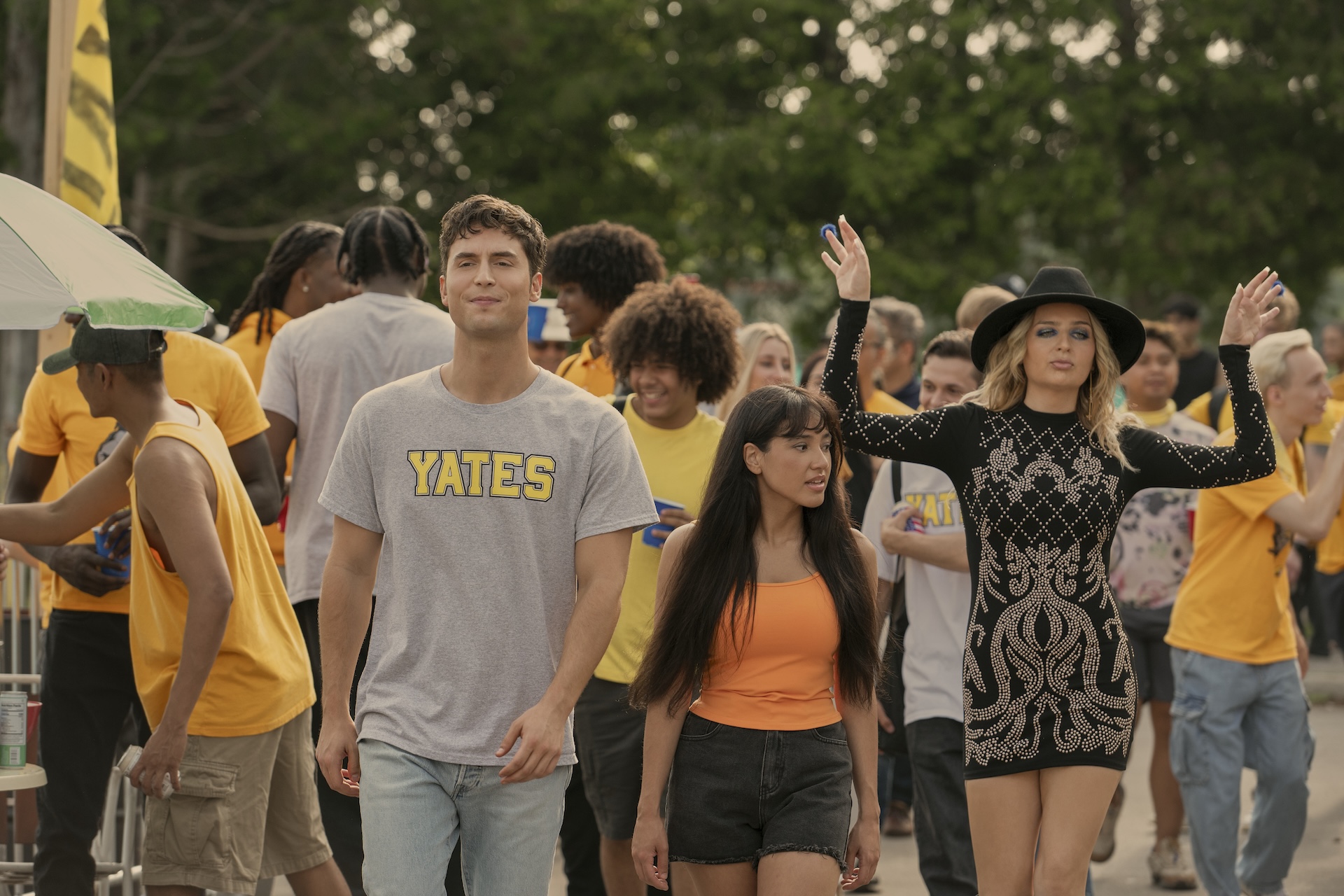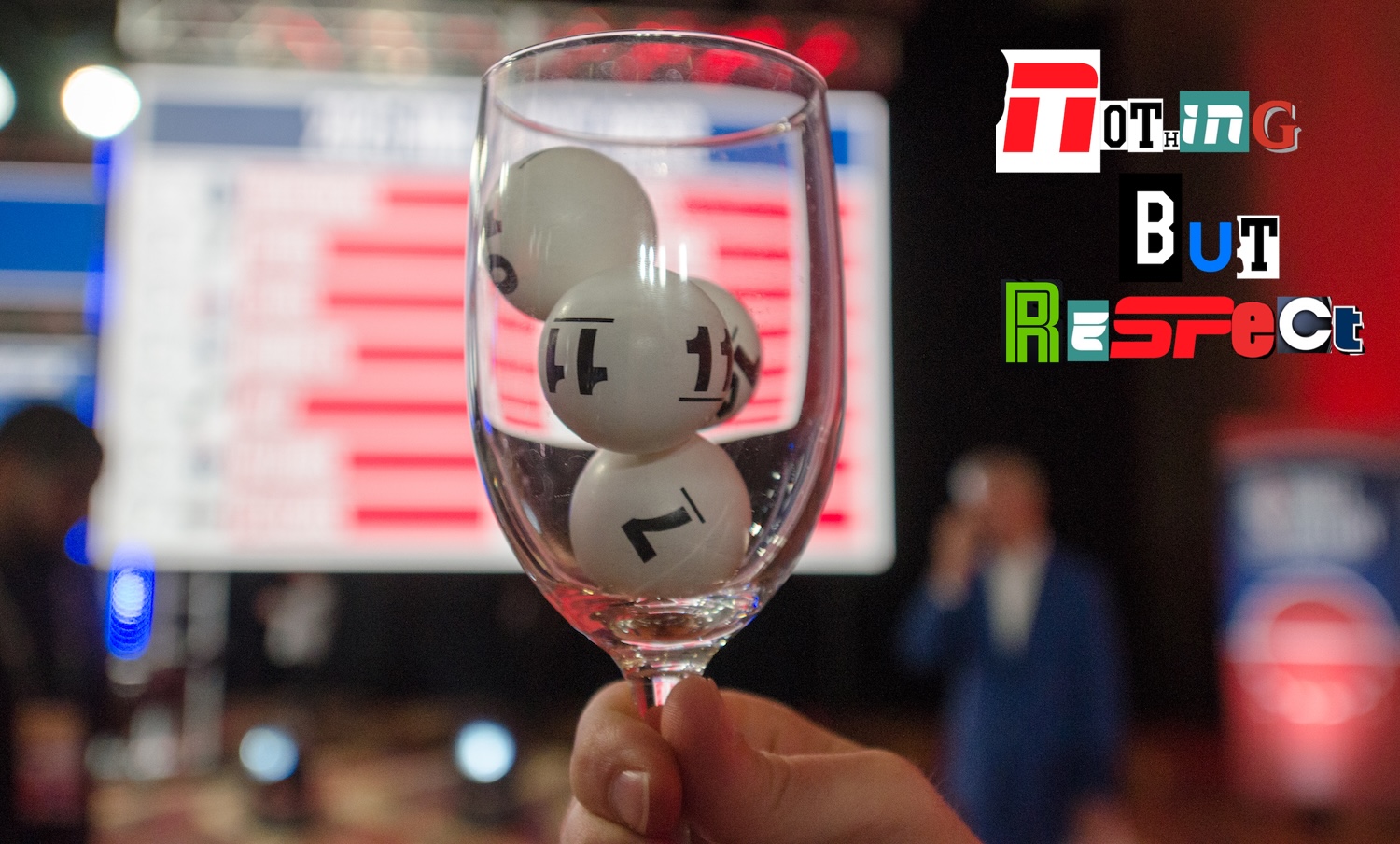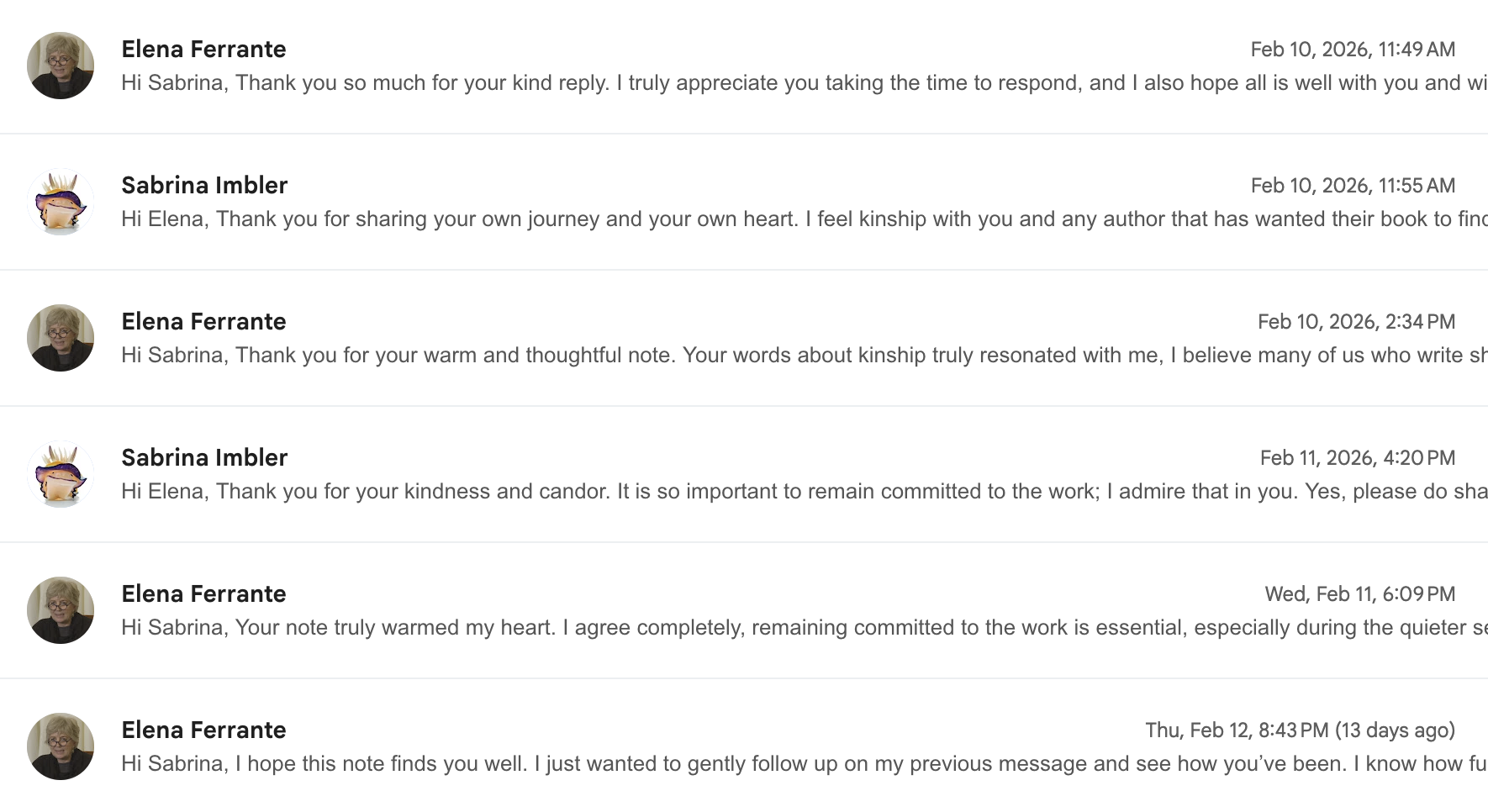I went into Overcompensating knowing very little, except that it was a vehicle for comic Benito Skinner. I know Skinner, like most people know him, through his @bennydrama7 Instagram account. He started it while still a high school student in Idaho—seven was the number on his football jersey—but only began posting his celebrity impressions and campy sketches as a college student at Georgetown. I specifically know him for one of my favorite bits of satire ever. I cannot for the life of me find it anymore, and my description won't do it justice, but it's basically Skinner parodying the work of Brampton bard Rupi Kaur—no one calls her that; all you need to know is that she's an extremely famous extremely terrible Instagram poet (example: “a man who cries – a gift”) who comes from a town near enough to me that at a certain point I had to hear about her best-selling collection, Milk and Honey, NEAR INCESSANTLY. In the video, Skinner films himself in close-up amongst candles, plants caressing his face as he soberly spouts pseudo-poetic inanities. He might have dumped the clip because it's a little too accurate, but he still has a post up from 2018 which gives you the idea: “I look to the flowers as my mirror. When they bloom … so do I. But what happens when … winter? ~rUpi KAuR." Her name is spelled exactly how he emphasizes it, which is what I remember most.
So this is what was in my head when I started watching Overcompensating. Benny stars as a college freshman named Benny who ALMOST hooked up with Lukas Gage (playing a fellow football player) in high school, which decompensates him enough to shove him so far back into the closet that it appears to have made him ... bad at acting, among other things. Skinner goes through this whole show with his face contorted into various TIGHT expressions, like he's about to implode from his black hole-level repression. His performance is SO unsubtle and his surroundings so generic—the rest of the cast features a nerdy girl friend named Carmen, a toxic frat boy, and an unrequited crush—that I thought, OK, this is clearly a camp parody. I thought that Skinner cast himself (31 years old), and his old comedy partner Mary Beth Barone (34 years old) in order to set up a series mocking all those teen dramedies from the ‘90s that cast way too old. I thought this had to at the very least be a Wet Hot American Summer version of Love, Simon, a riff on countless hackneyed pseudo-romcoms supposedly for closeted teens. I figured the off-ness was strategic. And it does work if you watch it that way, for about half of it.
As Overcompensating wears on, it becomes clear the show is as closeted as its main character. From the constant repetition of "no homo," to Carmen actually saying the words "my favorite uncle is gay," to all the toilet humor (there’s a puke-and-vomit montage tracked to executive producer Charli XCX's "Boom Clap"), to the gratuitous frontal male nudity—the excess lands in all the wrong places. I will say that Holmes, as Carmen's ditzy roommate, who's giving a cross between Anna Faris in The House Bunny and Anna Faris in Smiley Face, seems to get at what the show could have been had it allowed itself to go further. Matt Rogers and Bowen Yang also save one episode as an upwardly mobile gay couple who use Benny as a therapeutic lubricant. But more often, it's all just too serious to be the unserious you know Skinner is capable of and, in fact, better at. Overcompensating seems to want to deliver the message that everyone is overcompensating in their own way—turns out the toxic frat guy is not rich, for one thing, which, obviously—but as David Mack wrote at Slate, it “has the weird distinction of being a show centered around a gay character that is somehow almost entirely about straight people.” Despite its theme of internalized homophobia, the show itself doesn't appear able to transcend its own.
Skinner started writing Overcompensating in 2019 and it's supposed to take place in 2013, so this explains SOME of the tonal disconnect. At 25, he would have looked less glaring in the main role, and the year (notwithstanding the anachronisms) explains why some of it reads a little dated. Skinner, who came out in his senior year of college, has already written another season, which suggests that if this show goes on, he will likely spend the rest of it still looking like he's about to explode as he moves ever closer towards middle age—maybe the parody will come out more naturally as it goes? I'm not entirely convinced. Skinner has said the uncomfortable uptightness of his performance was as intentional as his beefcake physique (which took years of training). “I just needed to feel like there was athleticism and rigidity,” he told Harper's Bazaar. “Before any scenes with the boys, I’d just flex everything—like, the tightest butthole and the thickest neck!" The generic characters and storylines were also intentional. “It’s like American Pie, but what if we made it very gay?!” he said in the same magazine. “I wanted to make something that had those late-’90s, Y2K nostalgic influences, where all the characters sexualize themselves in ways that are clunky.” But I remember seeing American Pie when it came out in 1999, when I was the same age as the characters, and even back then I wondered who the hell it was for—to me it has always played like an executive's cold-hearted bid for the teen demographic. It's surprising, considering it's based on Skinner's own experience, that Overcompensating gives off the same impression.
I think this being Skinner's first show, he may have been trying to hit all the marks, and in doing so lost sight of what he does best, which tracks with his personality, apparently. “I think it’s also the OCD thing of trying to be perfect, and I thought ‘perfect’ meant ‘straight,'” Skinner told Deadline of his own experience growing up. “So I would do anything to remain in the closet." At Slate, Mack wrote that "the show manages to be both too gay for straight audiences and too straight for gay audiences," but I think that's less of a problem than how its sense of humor becomes lost in the sincerity of its main character’s struggle, giving way to a fundamentally safe, familiar narrative. I'm sure this isn't entirely Skinner's fault. He had a writer's room and the show is on Prime; it’s likely a story about a closeted football player will have had a significant number of executives' eyes on it. Hollywood is the kind of place you make another Bros, not another, I don't know, Shiva Baby, where the tension isn't just all over the main character’s face but permeating the entire film’s atmosphere. Some of the episodes of Overcompensating were directed by Desiree Akhavan, whose film Appropriate Behaviour, a romantic comedy about an Iranian bisexual who can't come out to her parents, is every bit as nuanced as Overcompensating is not. It came out a year after this show was set, though, so maybe Overcompensating just has to grow into it.






